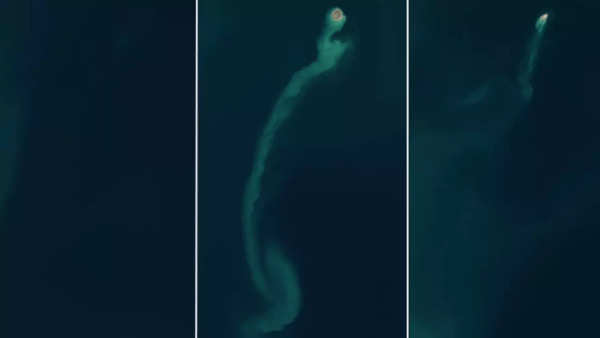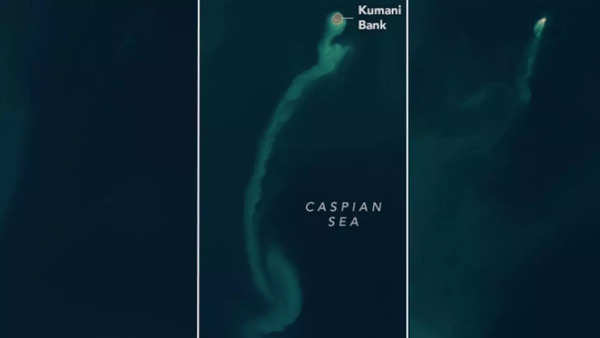
A rare and mysterious feature has recently appeared in the Caspian Sea. The temporary “ghost island” formed and then disappeared nearly as quickly. This landmass appeared after an eruption by the Kumani Bank mud volcano off Azerbaijan’s coast. This rare event was captured by NASA satellites, revealing the unpredictable nature of mud volcanoes to create a temporary landmass. The island came out at the start of 2023, very recently; by the late stages of 2024, it had fully eroded. Such an event suggests the geology on the Earth is a changing and dynamic affair, particularly in areas where active mud volcanoes exist.
The Kumani Bank mud volcano, located about 15 miles off the coast of Azerbaijan, erupted in 2023, spewing a mixture of fluids, gases, and sediments to the surface. The eruption created a temporary island. Pressure from beneath the Earth’s surface pushed these materials out, forming the island. The size of the island varied, and at its peak, it measured about 1,300 feet across.
Mysterious ‘ghost island’ spotted by NASA satellites
The birth and death of the island were photographed by NASA’s Landsat 8 and 9 satellites. The emergence of the island was documented between January 30 and February 4, 2023. The island was short-lived before it started to erode. By late 2024, the island had largely disappeared, leaving only sedimentary plumes. It was a short-lived phenomenon, as remote sensing instruments were able to capture its cycle of life to death.

Image source: NASA
It started eroding, and when all the sediments of the island vanished into the water, it simply disappeared. Soon after its formation, the island began to erode. Scientists monitored landmass withdrawal while comparing it with an apparition vanishing in the mist. By the last days of 2024, the island disappeared almost entirely when the sediment sank again into the Caspian Sea. The strong erosion points toward the short, unstable existence such formations typically go through.
Kumani Bank mud volcano and its role in creating temporary landmasses in Azerbaijan
One of the more than 300 mud volcanoes found in Azerbaijan is the Kumani Bank mud volcano. Mud volcanoes erupt erratically and temporarily create land on land and in the Caspian Sea. The first recorded eruption occurred in 1861, forming a landmass that only lasted for one year before completely eroding.

Image source: NASA
These mud volcanoes are outlets of the South Caspian Basin hydrocarbon system, releasing flammable gases like methane. Due to their peculiar behavior and importance in the geology of the region, geologists have been studying these mud volcanoes. Such features, although fascinating, are understudied, and scientists are still trying to understand them fully.
Role of mud volcanoes in geological studies
These mud volcanoes are known to create weird features of the environment-like temporary islands-but their formation and erosion are not well understood. As Mark Tingay describes these phenomena: “weird and wonderful,” thus leaving much to research to ascertain the full influence on the landscape. Though these phenomena happen to be ephemeral, the events surrounding mud volcanoes have been proven to be worthy resources in revealing the geologic processes on the planet.
Hence, the interesting “ghost island” that made its appearance at the bottom of the Caspian Sea from the mud volcano of the Kumani Bank following the great eruption was nothing but a geologically unpredictable outcome in the earthly sphere as per the reports. Well-photographed by means of satellite photographs, it reveals an everchanging landscape below ground.
Also Read | Can we retrieve memories from a dead person’s brain? Discover the science and challenges of memory recovery





